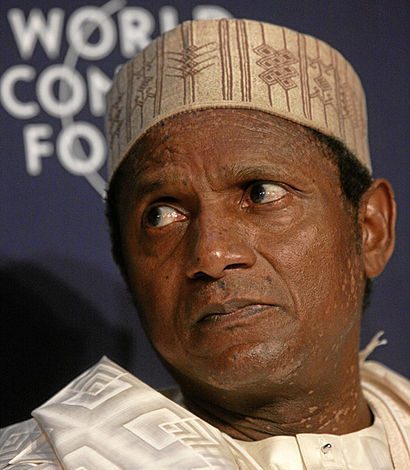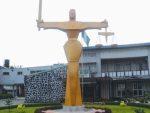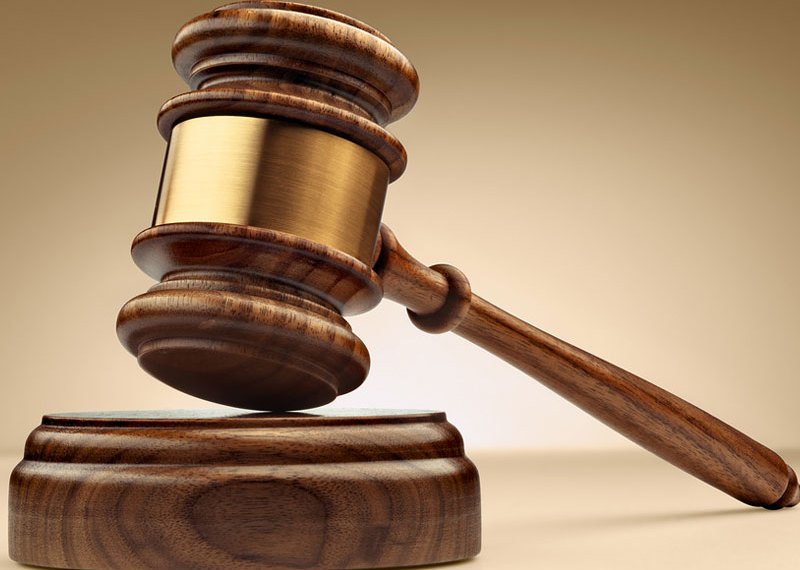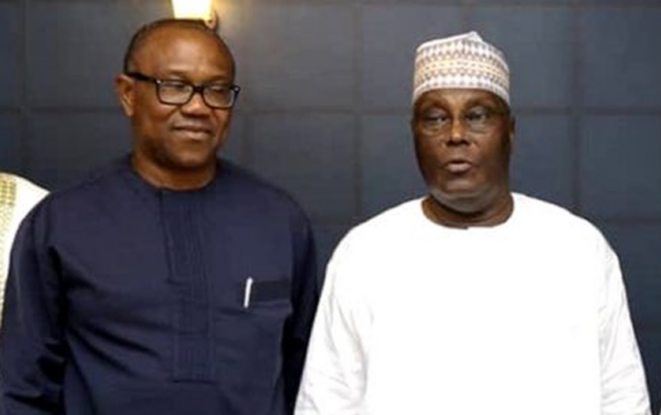On this day in history, Osun Defender recalls the sad event of May 5, 2010, when the 3rd democratically elected President of Nigeria, Umaru Musa Yar’Adua, died. Yar’Adua died on May 5, 2010, at the Aso Rock Presidential Villa and was buried the following day in his hometown of Katsina.
Biography
Umar Musa Yar’Adua was an important political figure in Nigeria, serving as the country’s President from 2007 until his death in 2010. He was born on August 16, 1951, in Katsina, Northern Nigeria, into an aristocratic Fulani family with a strong legacy in Nigerian politics; his father, Musa Yar’Adua, was a former Minister for Lagos Affairs during Nigeria’s First Republic.
READ: Osun Govt Bows To Court Order, Suspends Oyelakin’s Installation As Aree of Iree
Education
Yar’Adua was well-educated, attending prestigious schools throughout his early life. He graduated from the Government College in Keffi in 1969 and later attended Barewa College. He then pursued higher education in chemistry at Ahmadu Bello University in Zaria, graduating in 1975. He also attended a postgraduate program at Stanford University in California, enhancing his academic profile.
Political Journey
Yar’Adua’s political career began in the late 1970s. He first entered the public scene as a lecturer at the College of Arts, Science, and Technology in Zaria and later ventured into business. His active political career started in the late 1990s, when he became a member of the People’s Democratic Party (PDP).
He served as the Governor of Katsina State from 1999 to 2007, during which he was noted for his relatively uncorrupt governance and focus on public sector reforms.
In 2007, Yar’Adua was elected President of Nigeria after winning the presidential election as the candidate of the PDP. His election was controversial and marked by allegations of widespread electoral fraud, which he acknowledged and vowed to reform by promising electoral and other significant reforms.
Presidency and Controversies
During his presidency, Yar’Adua was known for his “Seven Point Agenda,” which aimed to address significant national issues such as energy shortages, education, and food security.
However, his tenure was plagued with challenges, including health issues that often kept him out of the public eye and abroad for medical treatment.
One of the most significant controversies of his presidency was his long medical absence in 2009–2010, which created a power vacuum and raised questions about the transparency of his administration’s communication regarding his health. This absence led to a political crisis that was only resolved when the Nigerian Senate installed Vice President Goodluck Jonathan as acting president in February 2010.
Health and Death
Yar’Adua had a long-standing kidney condition and later suffered from acute pericarditis, an inflammation of the heart sac. His health declined significantly during his presidency, leading to his death on May 5, 2010, at the age of 58.
Net Worth
Umar Musa Yar’Adua’s net worth during his lifetime was not officially disclosed, which is common for many political figures, particularly in regions where financial transparency in politics is still developing. While there were no concrete public records or official disclosures about his personal wealth, it is known that he came from a prominent and historically influential family, which may suggest a background of wealth.
As a public official, especially during his time as President of Nigeria, his assets and income were supposed to be declared according to Nigerian law, aimed at transparency and anti-corruption. However, detailed public disclosure of these assets was not widely circulated, if conducted at all.
Yar’Adua was often perceived as less flamboyant compared to other Nigerian politicians, and during his election campaign and presidency, he attempted to project an image of modesty and commitment to service, which was in line with his public persona of advocating for transparency and reform within the government.
This personal branding stood in contrast to the often extravagant displays of wealth associated with many of Nigeria’s political figures.
Thus, while exact figures regarding Yar’Adua’s net worth are not available, discussions about his wealth would be more speculative without concrete financial disclosures.
Legacy
Despite the controversies, Yar’Adua is remembered for his efforts to maintain peace in the Niger Delta through the amnesty program for militants, and his attempts at economic reforms and fighting corruption. His administration took significant steps towards stabilizing the country’s tumultuous political landscape, even though his sudden death left many of his initiatives uncompleted.
Yar’Adua’s legacy is mixed, reflecting both his attempts at genuine reform and the challenges of governance in a complex and often volatile political environment.


Sodiq Lawal is a passionate and dedicated journalist with a knack for uncovering captivating stories in the bustling metropolis of Osun State and Nigeria at large. He has a versatile reporting style, covering a wide range of topics, from politics , campus, and social issues to arts and culture, seeking impact in all facets of the society.











